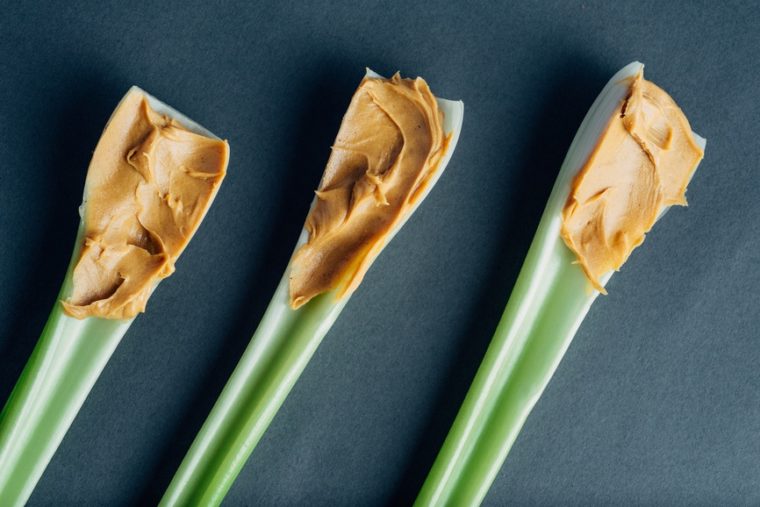Here’s What Can Happen When You Lose Weight Too Quickly
Yes, it may be tempting to fall prey to a flash slim-down scheme—like, when it's six weeks before your best friend’s wedding and your dress still doesn’t fit—but you may find it impacts your body in unexpected ways, from your hormones to your muscle tone to your mental health.
Here, Taub-Dix explains exactly how a crash diet affects you and shares her favorite (totally healthy) weight loss hack—one that doesn't involve a liquid meal plan and twice-daily spin classes.
So, what's the big deal about losing weight too quickly? Here's what you need to know.

You could be missing out on important vitamins and minerals
If you’re looking to drop pounds fast, chances are that means you’re going on some type of restrictive eating plan. But a lot of rapid weight-loss diets exclude important nutrients, which can be seriously detrimental to your body's systems.

{{post.sponsorText}}
“Many of these diets cut out whole food groups, which means we could be missing out on significant vitamins and minerals that we need to stay healthy,” Taub-Dix says. “This can lead to muscle cramps, bone loss, and it could affect heart rhythm.” When in doubt, look for a meal plan that contains all of the key macronutrients—fat, protein, and carbohydrates—and is based on whole foods found in nature.

Your body can go into starvation mode
If you stop giving your body what it needs (AKA food), yes, you’ll lose weight quickly at first. But, eventually, your body will think you’re in trouble and switch to energy-saving status.
“Shedding a lot of weight quickly changes the leptin hormone levels in our body,” Taub-Dix says. “Leptin controls your appetite. When your leptin levels get out of whack, your body responds by saving energy—slowing down your metabolism, slowing down your heart rate, slowing down your blood pressure." After a while, she adds, the weight loss will subside because of your body's need to conserve its resources.
And if you need another reason not to restrict calories, consider this: Research has proven it's food quality that matters when trying to lose weight, not the number of calories you're consuming.

You may experience negative psychological effects
This is something we don’t often think about, but a crash diet could actually mess with your mental health. “If someone loses a lot of weight very quickly it doesn’t give them a chance to adapt to their new body, which can lead to a whole host of other issues,” Taub-Dix says. “Even if someone may have achieved the weight they wanted, oftentimes the fear of maintaining that weight can lead to an eating disorder like anorexia or bulimia.”
Taub-Dix also points out that super-restrictive diets can have a negative effect on your social life, which plays a major role in your wellbeing. If you think about it, it would be pretty hard to truly enjoy a happy hour with friends if you're obsessing over the sugar content of your mocktail.

You could sacrifice strength in the gym
If you take pride in your flawless deadlift technique, listen up: According to Taub-Dix, speedy weight loss usually means loss of fat and muscle. And without strong muscles, you'll have a harder time burning fat.
“Muscle cells burn calories much more readily than fat cells do,” Taub-Dix says. “Although after your rapid weight loss you may technically weigh the same as you did 10 years ago, you’re probably composed of more fat than you were back then, which will be harder to get rid of in the long run.”
So what is the best way to shed a little weight? Incorporate more weights into your workouts, or take Taub-Dix's advice and start keeping a food diary. “Write down every single thing that you eat, even a bite of someone’s whatever," she says. "I would pretty much bet that you would drop a few pounds." At the very least, it might inspire you to make your office snack drawer a little healthier—it's been real, candy stash.
Is it possible to love your body and still want to lose weight? Leaders of the body-positivity movement weigh in. Plus, here's how to deal with people who make awkward comments about your weight.
Loading More Posts...